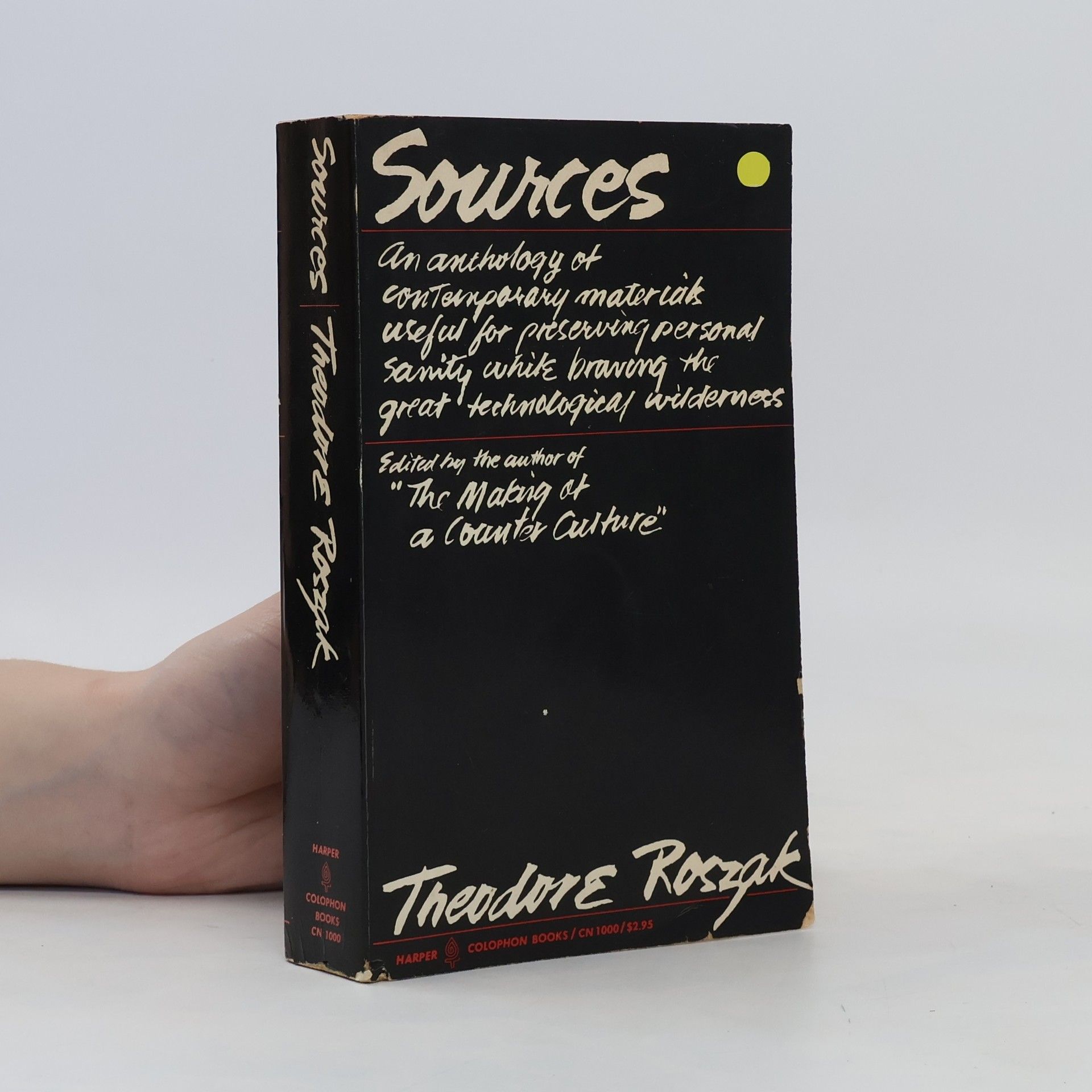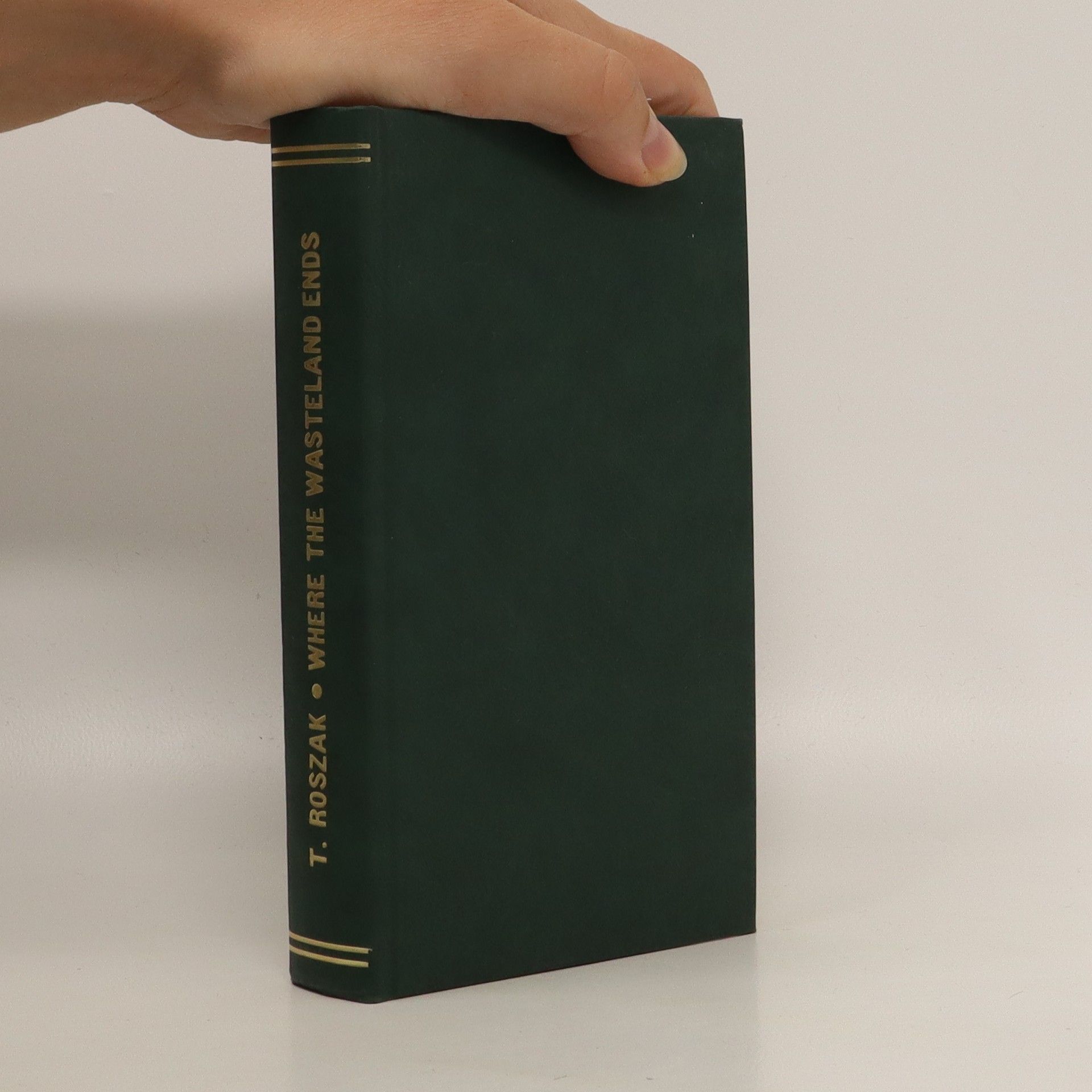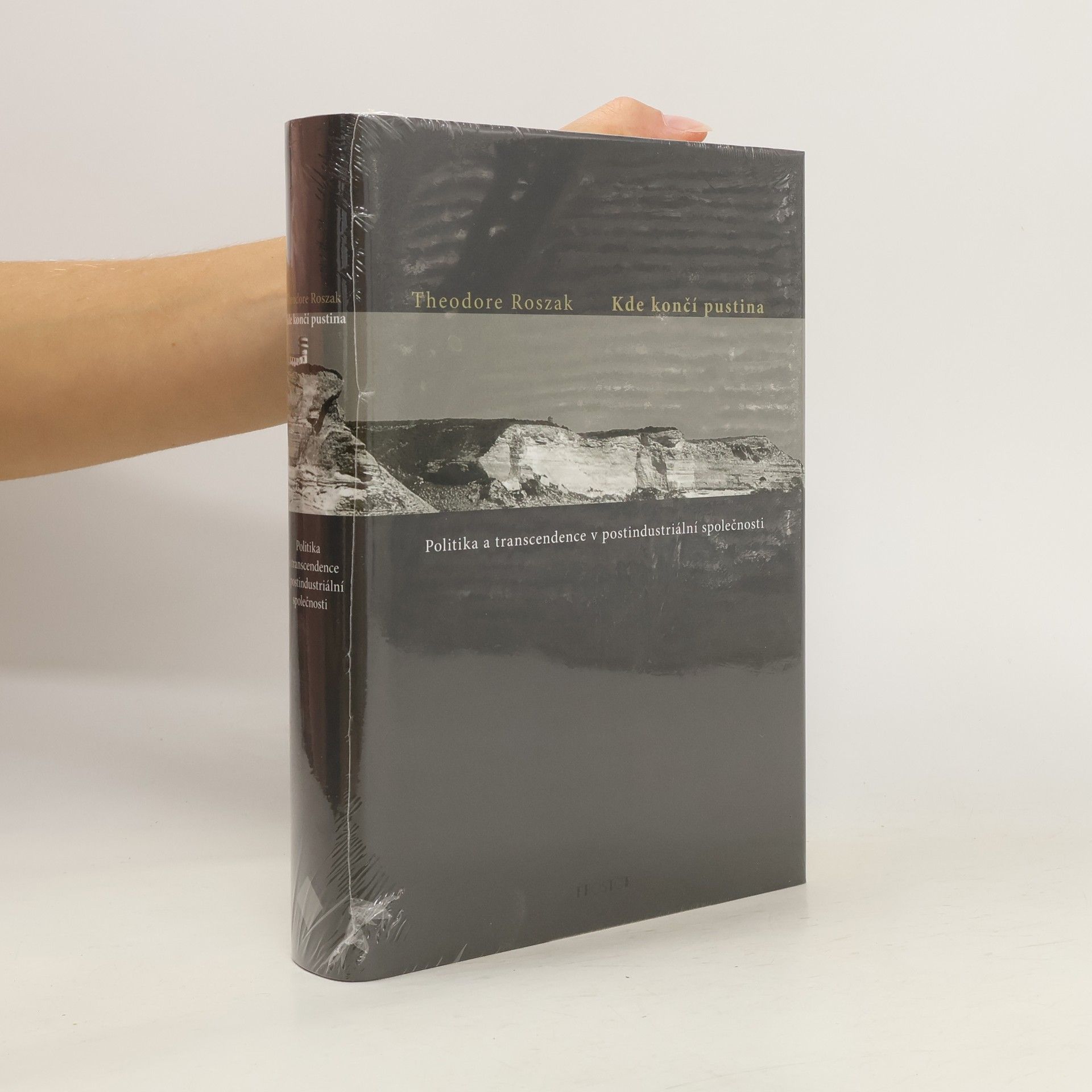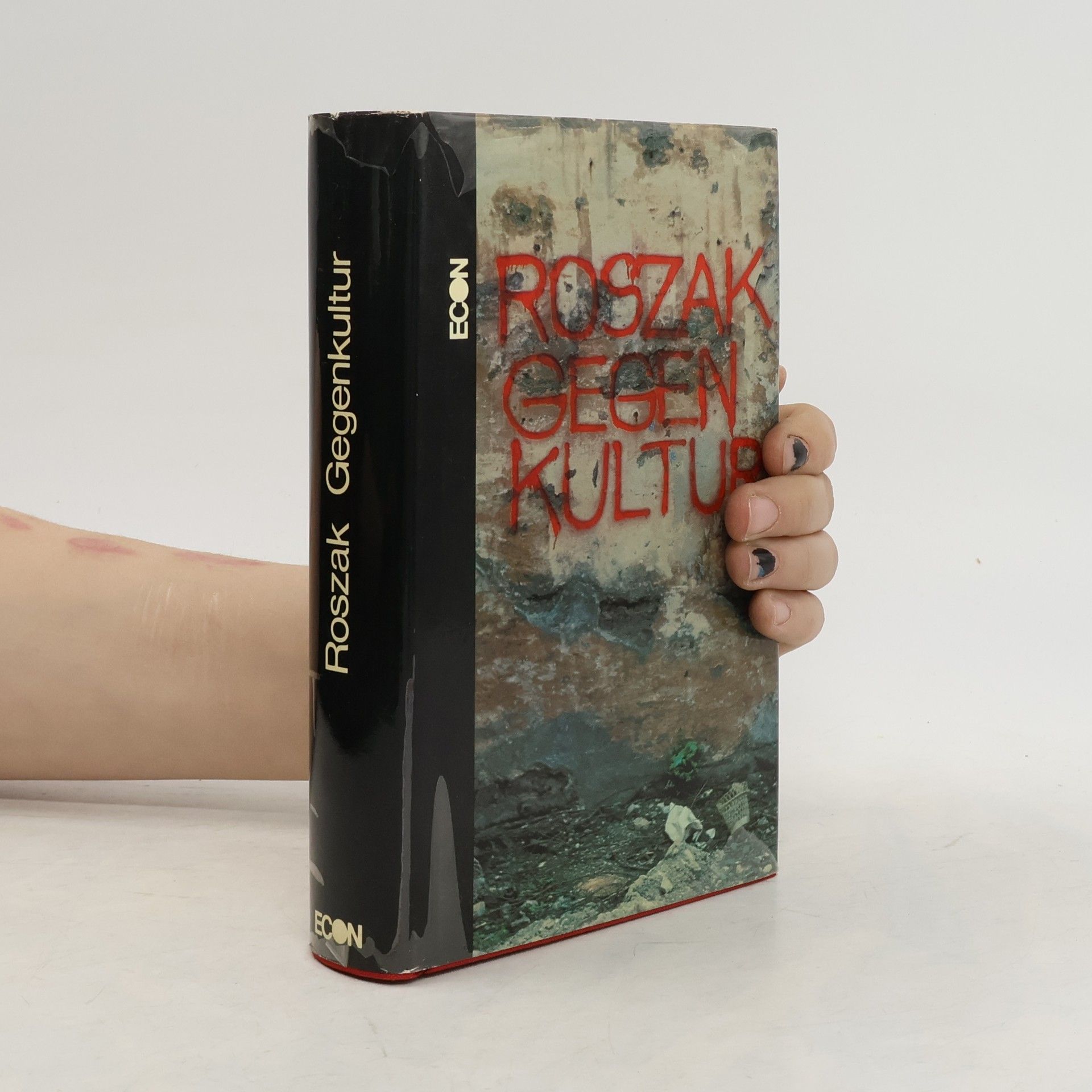Theodore Roszak, významný americký historik a sociolog 20. století, se proslavil v roce 1970 svým „sociologickým bestsellerem“, v němž analyzuje transformaci industriální kultury na kulturu postindustriální a vznik alternativních postojů mezi mládeží. V knize Kde končí pustina? se zabývá potlačením transcendentního rozměru lidské osobnosti v západní kultuře a jeho vlivem na rozvoj umělého životního prostředí a technokratické politiky v městsko-průmyslové společnosti. Roszak tvrdí, že smrt Boha se stala politickou realitou a represe náboženské vnímavosti se stala společenskou a ekonomickou nutností. Upozorňuje, že pro rozvoj městsko-průmyslové kultury byla stejně důležitá jako akumulace kapitálu. V díle zkoumá, jak byla náboženská cítění v průmyslové společnosti bezohledně potlačována. Roszak provází čtenáře dějinami západní kultury a ukazuje, jak „pradávnou gnózi“ nahradila dominantní materialistická koncepce. Usiluje o znovunalezení duchovního rozměru života a vyváženého vztahu k přírodě, předjímá ekologickou vnímavost a vyzývá vědeckou obec k podpoře duchovní regenerace. Jeho závěrečná slova o budoucí politice naznačují, že duchovní a ekologická obnova mohou radikalizovat společnost. Roszakova studie si zachovává naléhavost i na počátku třetího tisíciletí, neboť mnohé jeho úvahy se ukázaly jako pravdivé.
Theodore Roszak Knihy
Theodore Roszak bol emeritným profesorom histórie. Je najviac známy svojím dielom, ktoré zaznamenalo a vysvetlilo európsku a severoamerickú kontrakultúru 60. rokov. Všeobecne sa mu pripisuje prvé použitie pojmu „kontrakultúra“. Jeho práca analyzuje spoločenské a kultúrne fenomény s hlbokým pochopením.







Zrod kontrakultury – Úvahy o technokratické společnosti a mládeži v opozici
- 324 stránok
- 12 hodin čítania
Detailní rozbor několika myslitelů, kteří tehdejší mladistvou kontrakulturu ovlivnili nejsilněji – Herberta Marcuseho a Normana Browna, Allena Ginsberga a Paula Goodmana – ukazuje, jakým způsobem každý z nich zpochybňuje převládající vědecký pohled na svět a tím také podkopává základy technokracie. Následně obrací pozornost k „mýtu objektivního vědomí“ a tvrdí, že kultura, která potlačuje nebo degraduje vizionářskou zkušenost, se dopouští hříchu oslabování naší existence. Otázka stojící před námi totiž nezní „jak vědět?“ ale „jak žít?“. Nalezení odpovědi si žádá obnovu magického pohledu na svět, ze kterého vyrůstá lidská tvořivost i pospolitost. Roszakovi se tak s moudrým vhledem daří odhalovat hlubší smysl tehdejších studentských nepokojů, beatniků a hippies, psychedelického hnutí, rockové hudby, oživení okultismu a mysticismu, protestu proti americké válce ve Vietnamu i nevoli mladé generace stát se součástí bohaté technologické společnosti. V předmluvě z roku 1995 se Roszak krátce zamýšlí nad vývojem, jakým prošla kontrakultura od chvíle, kdy tento termín zavedl.
Where the Wasteland Ends: Politics and Transcendence in Postindustrial Society
- 451 stránok
- 16 hodin čítania
Book by Roszak, Theodore
Flicker
- 592 stránok
- 21 hodin čítania
Twice nominated for the National Book Award, Roszak has penned a superbly-crafted novel that's sure to entertain--and send chills up your spine. The author of the highly acclaimed The Making of a Counterculture, Roszak provides a fast-paced narrative full of tangled conspiracies and dark obsessions. It's film noir at its darkest and most obsessive.
The Cult of Information
A Neo-Luddite Treatise on High-Tech, Artificial Intelligence, and the True Art of Thinking
- 267 stránok
- 10 hodin čítania
As we devote ever-increasing resources to providing, or prohibiting, access to information via computer, Theodore Roszak reminds us that voluminous information does not necessarily lead to sound thinking. "Data glut" obscures basic questions of justice and purpose and may even hinder rather than enhance our productivity.In this revised and updated edition of The Cult of Information , Roszak reviews the disruptive role the computer has come to play in international finance and the way in which "edutainment" software and computer games degrade the literacy of children. At the same time, he finds hopeful new ways in which the library and free citizens' access to the Internet and the national data-highway can turn computer technology into a democratic and liberating force. Roszak's examination of the place of computer technology in our culture is essential reading for all those who use computers, who are intimidated by computers, or who are concerned with the appropriate role of computers in the education of our children.
Sources
An Anthology of Contemporary Materials Useful for Preserving Personal Sanity While Braving the Technological Wilderness
Die Memoiren der Elizabeth Frankenstein. Roman
- 575 stránok
- 21 hodin čítania
Elizabeth Frankensteins geheime Aufzeichnungen enthüllen eine andere Geschichte: War sie wirklich das unschuldige Opfer von Victors Experimenten? Dieses Buch bietet ein emotional und erotisch aufgeladenes Gegenstück zu Mary Shelleys "Frankenstein".
Der Verlust des Denkens
- 335 stránok
- 12 hodin čítania
Gegenkultur
- 432 stránok
- 16 hodin čítania
Die neue herrschende Klasse in Amerika ist erzkonservativ, christlich-fundamentalistisch und besteht aus Marktradikalen, die den Pluralismus der offenen Gesellschaft bekämpfen. Sie steuern Amerika auf einen Kurs, der von religiösem Sendungsbewusstsein und Wirtschaftsimperialismus geprägt ist. Der international anerkannte Kulturkritiker Theodore Roszak analysiert, wie Amerika zu neuer Legitimität gelangen kann und welche Rolle Europa dabei spielt. In seiner tiefgehenden Untersuchung der letzten 30 Jahre amerikanischer Geschichte zeigt er auf, dass Amerika zur Bühne einer erstarkenden Rechten geworden ist. Diese Macht wird durch drei Säulen verkörpert: Die Corporados, eine Gruppe von Wirtschaftsmagnaten, deren Gier keine Grenzen kennt, symbolisiert durch den Enron-Skandal und die „Killer-CEOs“, die sich über Gesetze hinwegsetzen. Die Triumphalisten, eine politische Klasse, setzen auf militärische Aufrüstung, um wirtschaftliche Herausforderer zu ersticken. Schließlich die Fundamentalisten, religiöse Fanatiker, die eine christliche Weltordnung notfalls gewaltsam durchsetzen wollen. Roszak fordert Europa auf, diese Allianz von Wirtschaft, Militär und Religion zu erkennen, um die USA an ihre demokratischen Standards zu erinnern und sie in internationale Organisationen zurückzuführen.



